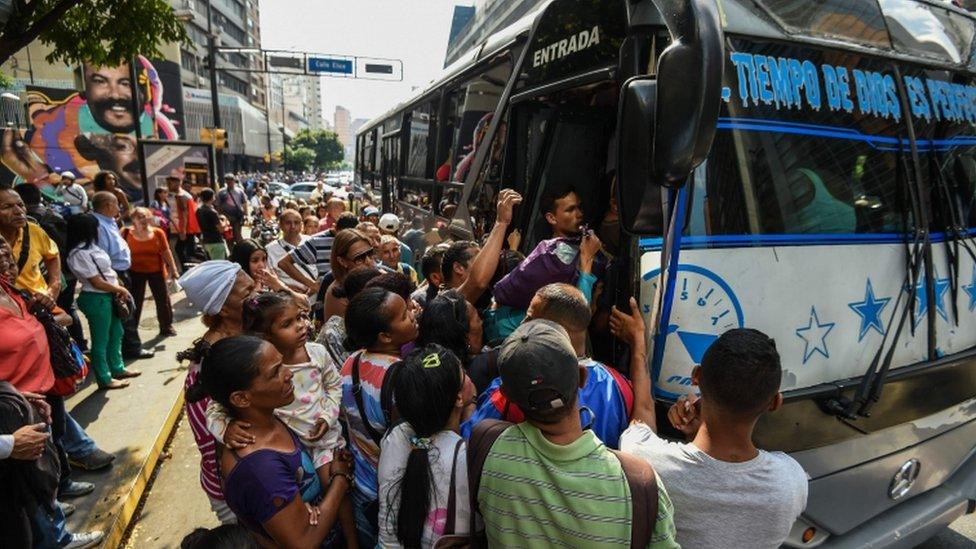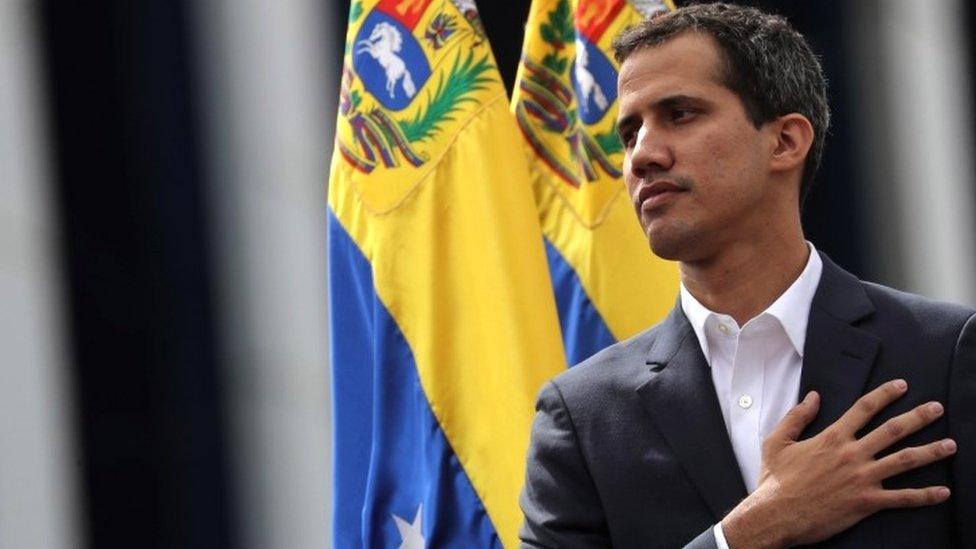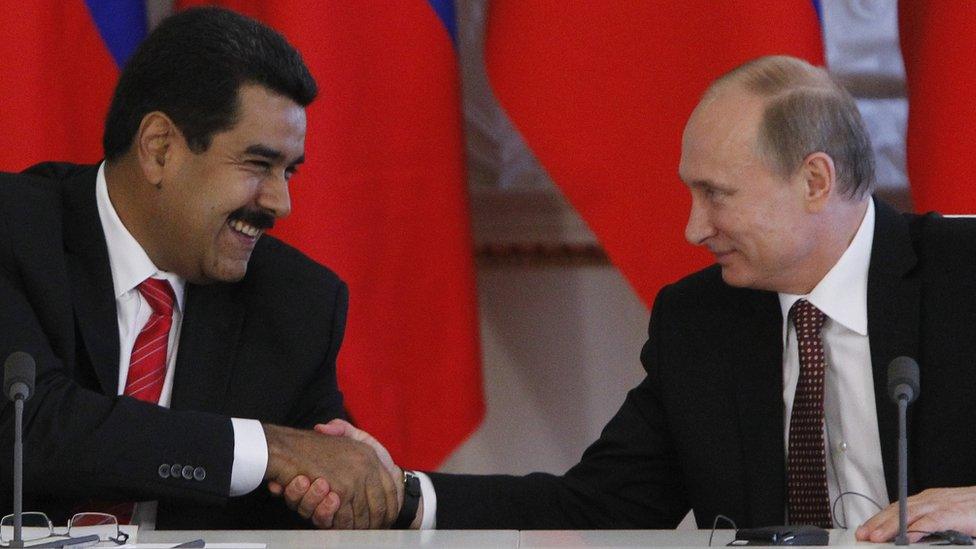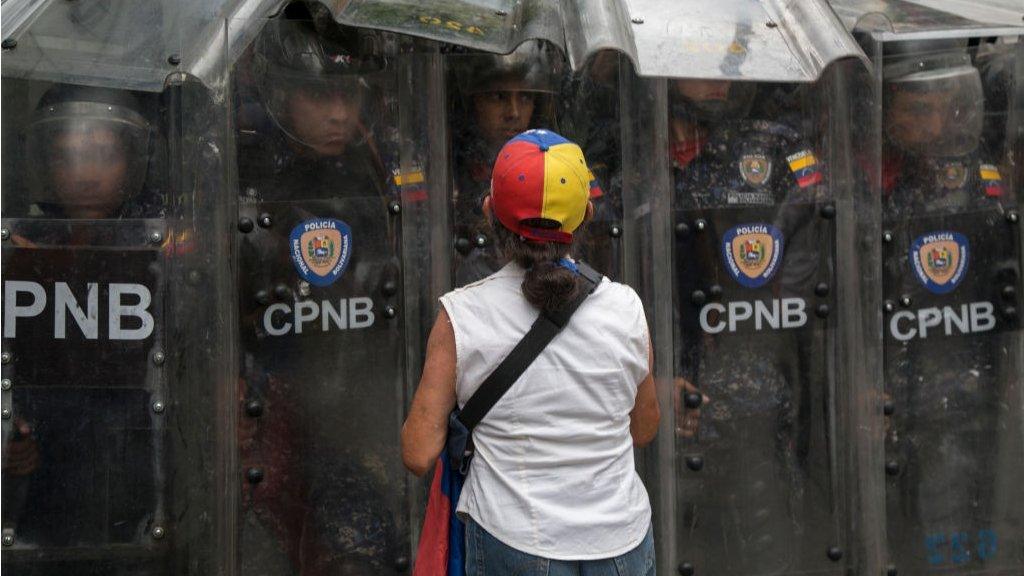Venezuela crisis: Day off as fresh power cuts shut down services
- Published

Lights went out and mobile phone and television services were disrupted in Caracas
Venezuela's government has told workers and students to stay at home as the country faces a second day without electricity.
Hospitals, public transport, water and other services have been affected.
The capital, Caracas, was first plunged into darkness on Monday. Power was restored four hours later, before a second blackout struck.
A days-long nationwide power cut earlier this month prompted looting and desperation in parts of the country.
President Nicolás Maduro's government blames the power cuts on an "attack" by the opposition, led by Juan Guaidó.
The opposition cites two decades of underinvestment and corruption by the socialist government as the cause of the power outage.
"Nothing is working," Yendresca Munoz, a 34-year-old bank analyst living in Caracas told Reuters news agency. "During blackout days you can't do anything at all. There's no internet, no access to cash."
Other big cities, including Barquisimeto, Maracaibo in the west of the country, have also been reportedly affected.
On Twitter, Mr Guaidó said: "When our people need certainty in the middle of another unsettling blackout, how can they go on repeating excuses of an 'electricity war' and sabotage?"
Since January, the opposition leader has been locked in a power struggle with Mr Maduro's government, which is grappling with a severe economic crisis.
Last week, Mr Guaidó's chief of staff was arrested on terrorism charges in another escalation of the political crisis.
What happened?
Power first went down in Caracas around 13:20 (17:20 GMT) on Monday, causing chaos in the city's public transport system as the metro shut down and many thousands of people had to stream home on foot or by bus.

The metro closure in Caracas forced people to take crowded buses
Electricity was restored about four hours later but cut out again at 21:50, Information Minister Jorge Rodríguez was quoted as saying by Efe news agency.
He had gone on state TV earlier to repeat the now-familiar assertion that opposition sabotage rather than a lack of maintenance had caused the afternoon blackout, saying hackers had attacked computers at the country's main hydroelectric dam.
The minister boasted that the first power cut had been fixed in "record time". Since the second outage, power has still not been restored.
Because of the problems with the power supply, TV viewers could only see a garbled picture when Mr Rodríguez went live on air, a correspondent for the UK's Guardian newspaper tweeted from Caracas.
Allow X content?
This article contains content provided by X. We ask for your permission before anything is loaded, as they may be using cookies and other technologies. You may want to read X’s cookie policy, external and privacy policy, external before accepting. To view this content choose ‘accept and continue’.

Meanwhile, Brazil's mines and energy minister Bento Albuquerque said that since 7 March, Venezuela has failed to fulfil its contract to supply electricity to the northern Brazilian state of Roraima.
He said Brazil was working to start building a transmission line to connect Roraima to the rest of the Brazilian power grid in the second half of the year for completion in 2021, so that it was not reliant on Venezuela.
He added that Brazil would also seek public contracts for renewable energy, such as wind and solar, as another alternative to Venezuela's supply.
- Published24 January 2019

- Published1 February 2019

- Published12 August 2021
